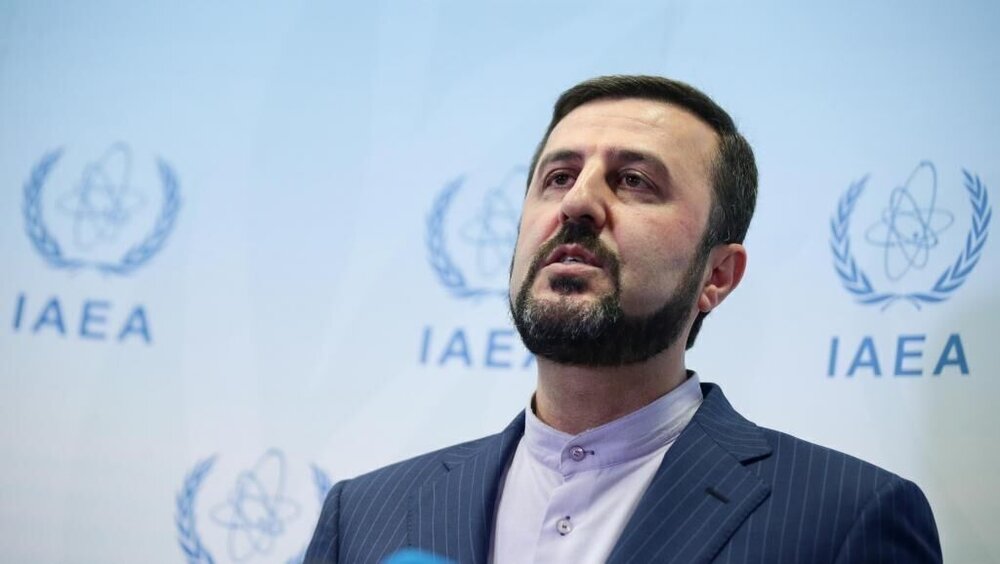Envoy urges IAEA to guarantee implementation of nuclear-related co-op

TEHRAN – Kazem Gharibabadi, Iran's ambassador and permanent representative to the Vienna-based international organizations, has stressed that the International Atomic Energy Agency (IAEA) should guarantee effective implementation of nuclear-related technical cooperation programs.
During a meeting of the Agency's Cooperation and Technical Assistance Committee, which was held via video conference on Monday, Gharibabadi said the efforts by the IAEA chief to ensure the effective implementation of technical cooperation programs are very important and their realization requires high solidarity and cooperation at all levels in the world.
“It must be guaranteed that today's challenging situation does not have a detrimental effect on the implementation of the Agency's technical cooperation programs, and most importantly, that these projects have sufficiently guaranteed resources,” he stated.
In order to address the commotion created by the United States and its allies over the Islamic Republic’s nuclear program, Tehran signed a nuclear deal with six world powers in 2015. Under the deal, Iran agreed to limit its nuclear activities in exchange for a termination of sanctions.
However, President Donald Trump withdrew the U.S. from the deal, officially called the Joint Comprehensive Plan of Action (JCPOA), in May 2018 and imposed the harshest sanctions in history against Iran in line with his “maximum pressure” campaign against Iran.
Iran has also signed the nuclear Non-Proliferation Treaty (NPT) — whose aim is to prevent the spread of nuclear arms and weapons technology — in July 1968 and ratified it in February 1970.
The Islamic Republic has repeatedly said that it has never sought and will never seek to build nuclear weapons. The decision, Tehran says, is based on a fatwa (religious decree) issued by Leader of the Islamic Revolution Ayatollah Ali Khamenei. The fatwa bans the production, possession and stockpiling of nuclear weapons and other weapons of mass destruction.
Last month, Gharibabadi criticized the head of the IAEA for using irrelevant terms in his remarks on Iran’s nuclear program, saying such terms have no place in the IAEA’s documents.
“Drawing self-made criteria such as ‘breakout’ and ‘significant quantity’ for countries which are enriching uranium under the IAEA’s surveillance is non-relevant and has no status in the IAEA legal documents,” he said.
The remarks came after IAEA chief Rafael Grossi said Iran is not in possession of enough enriched uranium to develop nuclear weapons.
“The Iranians continue to enrich uranium, and to a much higher degree than they have committed themselves to. And this amount is growing by the month,” Grossi said in an interview with Austrian paper Die Presse.
Iran’s nuclear activities are subject to the most intrusive inspections by the United Nations’ nuclear watchdog.
MH/PA
Leave a Comment